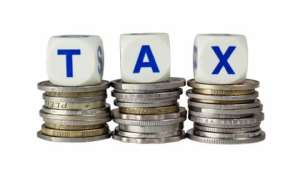
The Petroleum Unit and Customs Division of the Ghana Revenue Authority (GRA) is adopting a new model of tax collection from Oil Marketing Companies (OMCs).
This new model entreats all OMCs to post their bond and bank guarantees as security for the recovery of taxes in case they default.
Petroleum Unit and Customs Division of the GRA, Isaac Crentsil told JoyBusiness the new model forms part of GRA's strategy to deal with revenue leakages, especially in the petroleum sector.
Mr Crentsil said, “Some of the OMC have gone into so much debt that they find it difficult paying their taxes. Cooperation has so far been good but the way forward now is to fall on their bonds and bank guarantees. Once you come to us under the bonding system we just made the deductions once you default.”
Local Content in the Oil and Gas sector
But speaking to Joy Business at the sidelines of the 8th EY Meet the Regulator Series, Director of Special Services of the Petroleum Commission, Kwaku Boateng revealed to JoyBusiness that new regulations are being introduced to help Ghanaian companies win oil contracts.
So far, most Ghanaian companies have been kicked out of oil contracts mainly because of their inability to meet high standards.
But Mr Boateng said going forward, all contracts will now be dissolved to get local companies to participate in the activities of the oil and gas value chain.
He said, “The oil and gas industry is a high-value industry. The level of sophistication is very high. The average contract is about $50 million and most of them require huge technical input. A lot of Ghanaian companies are constrained by their ability to meet the requisite technical sophistication.
Mr Boateng said “Measures are being taken to address this issue. We have this policy of abandoning of contracts were huge contracts are broken down to various decompositions so that Ghanaian companies can successfully bid for them.”
Captains of the indigenous Ghanaian oil and gas companies have welcomed steps being taken by the Petroleum Commission (PC) to create a level playing field for all players within the country’s upstream oil and gas space.
This follows the announcement by the PC to establish an electronic portal (e-Portal) system to bridge the information asymmetry towards Ghanaian and other competitors in the industry.
Meanwhile, organizers of the breakfast meeting, Ernst and Young, said the meeting with the Petroleum Commission, National Petroleum Authority (NPA) and the Ghana Revenue Authority (GRA) was to furnish the auditing firm with enough information on challenges facing the petroleum sector so as to meet them with practical solutions.
The 8th Meet the Regulator Series by Tax, Transactions and Advisory Services, Ernst and Young Global Limited was aimed at assessing major challenges facing the petroleum sector which includes tax collection and local content.




 Minority will expose the beneficial owners of SML, recover funds paid to company...
Minority will expose the beneficial owners of SML, recover funds paid to company...
 Prof. Opoku-Agyemang has ‘decapitated’ the NPP’s strategies; don’t take them ser...
Prof. Opoku-Agyemang has ‘decapitated’ the NPP’s strategies; don’t take them ser...
 Abubakar Tahiru: Ghanaian environmental activist sets world record by hugging 1,...
Abubakar Tahiru: Ghanaian environmental activist sets world record by hugging 1,...
 Prof. Naana Opoku-Agyemang will serve you with dignity, courage, and integrity a...
Prof. Naana Opoku-Agyemang will serve you with dignity, courage, and integrity a...
 Rectify salary anomalies to reduce tension and possible strike action in public ...
Rectify salary anomalies to reduce tension and possible strike action in public ...
 Stop all projects and fix ‘dumsor’ — Professor Charles Marfo to Akufo-Addo
Stop all projects and fix ‘dumsor’ — Professor Charles Marfo to Akufo-Addo
 Blue and white painted schools will attract dirt shortly – Kofi Asare
Blue and white painted schools will attract dirt shortly – Kofi Asare
 I endorse cost-sharing for free SHS, we should prioritise to know who can pay - ...
I endorse cost-sharing for free SHS, we should prioritise to know who can pay - ...
 See the four arsonists who petrol-bombed Labone-based CMG
See the four arsonists who petrol-bombed Labone-based CMG
 Mahama coming back because Akufo-Addo has failed, he hasn't performed more than ...
Mahama coming back because Akufo-Addo has failed, he hasn't performed more than ...
